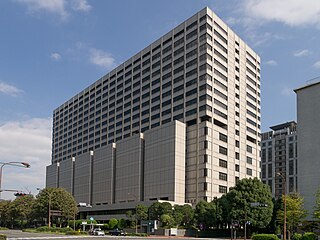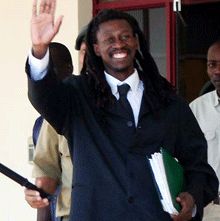
Botswana, officially the Republic of Botswana, is a landlocked country in Southern Africa. Botswana is topographically flat, with approximately 70 percent of its territory being the Kalahari Desert. It is bordered by South Africa to the south and southeast, Namibia to the west and north, and Zimbabwe to the northeast. It is connected by the Kazungula Bridge to Zambia, across the world’s shortest border between two countries.

Politics of Botswana takes place in a framework of a parliamentary representative democratic republic, whereby the President of Botswana is both head of state and head of government, and of a multi-party system. Executive power is exercised by the government. Legislative power is vested in both the government and the Parliament of Botswana. In part because the party system has been dominated by the Botswana Democratic Party (BDP), which has never lost power since the country gained independence from the United Kingdom in 1966, the Economist Intelligence Unit has rated Botswana as a "flawed democracy."

The Government of Botswana often abbreviated as GOB, is the union government created by the constitution of Botswana having the executive, parliament, and the judiciary. The Seat of the Government is located in Gaborone, Botswana. The government is led by the president.

High court is a name for a variety of courts, often with jurisdiction over the most serious issues.
The Federal Court of Canada, which succeeded the Exchequer Court of Canada in 1971, was a national court of Canada that had limited jurisdiction to hear certain types of disputes arising under the federal government's legislative jurisdiction. Originally composed of two divisions, the Appellate Division and the Trial Division, in 2003 the Court was split into two separate Courts, the Federal Court and the Federal Court of Appeal. The jurisdiction and powers of the two courts remained largely unchanged from the predecessor divisions.

The Supreme Court of Texas (SCOTX) is the court of last resort for civil matters in the U.S. state of Texas. A different court, the Texas Court of Criminal Appeals (CCA), is the court of last resort in criminal matters.

The Court of Appeal of the High Court of Hong Kong is the second most senior court in the Hong Kong legal system. It deals with appeals on all civil and criminal cases from the Court of First Instance and the District Court. It is one of two courts that makes up the High Court of Hong Kong. Sometimes criminal appeals from Magistrates' Courts with general public importance are also dealt with in the Court of Appeal, either by referral by a single judge from the Court of First Instance, or upon granting of leave on application for review by the Secretary for Justice.

South Africa has a 'hybrid' or 'mixed' legal system, formed by the interweaving of a number of distinct legal traditions: a civil law system inherited from the Dutch, a common law system inherited from the British, and a customary law system inherited from indigenous Africans. These traditions have had a complex interrelationship, with the English influence most apparent in procedural aspects of the legal system and methods of adjudication, and the Roman-Dutch influence most visible in its substantive private law. As a general rule, South Africa follows English law in both criminal and civil procedure, company law, constitutional law and the law of evidence; while Roman-Dutch common law is followed in the South African contract law, law of delict (tort), law of persons, law of things, family law, etc. With the commencement in 1994 of the interim Constitution, and in 1997 its replacement, the final Constitution, another strand has been added to this weave.

Lesbian, gay, bisexual, and transgender (LGBT) persons in Botswana face legal issues not experienced by non-LGBT citizens. Both female and male same-sex sexual acts have been legal in Botswana since 11 June 2019 after a unanimous ruling by the High Court of Botswana. Despite an appeal by the government, the ruling was upheld by the Botswana Court of Appeal on 29 November 2021.

The present Constitution of Botswana commenced on September 30, 1966.

Modise Mokwadi Fly was a Botswana politician and activist who was executed in 2010 for murdering his two-year-old son in 2006.

A referendum on judicial reform was held in Botswana on 3 November 2001, having been originally scheduled for 6 October, but later postponed. The referendum asked eight separate questions about judges and courts, all of which were approved, seven by a margin of over 70%. Voter turnout for the referendum was just 4.9%, with 22,600 votes from a total of 460,252 registered voters. The postponement of the referendum by the government, a legal challenge by the Tswana nationalist group Pitso Ya Batswana, and a call by the group for a boycott were all suggested as reasons for the low turnout. Pitso Ya Batswana claimed that the referendum was an attempt by the BaKalanga ethnic group, who are over-represented in the judicial system, to increase their hold over it.
Attorney General of Botswana v. Unity Dow was a landmark decision of Botswana's Court of Appeal. The case upheld the decision brought to the High Court of Botswana, by the lawyer, Unity Dow, who would go on to become a judge on the High Court and a government minister. It declared provisions of the 1984 Citizenship Act, which barred children from receiving nationality from their mothers, to be unconstitutional. It resulted in the passage of the 1995 Citizenship Act of Botswana, which eliminated gender disparities in the law. The case sparked women to press for changes to nationality laws across Africa.

Mariëtte Sonjaleen Bosch was a South African woman who was executed in Botswana on 31 March 2001. Bosch was convicted for the murder of Maria Magdalene "Ria" Wolmarans, both members of the white expatriate community in Gaborone, in June 1996. She was the first white woman to be executed in Botswana, and was the fourth woman to be hanged since the country's independence. Due to these two factors, the murder case received significant attention outside the country and was referred to as "Botswana's White Mischief".
Sir Phillip James Macdonell was the 25th Chief Justice of Ceylon. He was appointed in 1930 succeeding Stanley Fisher and was Chief Justice until 1936. He was succeeded by Sidney Abrahams.
Michael Mathealira Ramodibedi was a jurist from Lesotho who has served on the courts of several Commonwealth countries in Africa. A graduate of the University of Botswana, Lesotho, and Swaziland, he began his law career in Lesotho, and would later go on to hold positions on the bench there as well as in Seychelles and Botswana. He was the Chief Justice of Swaziland until 17 June 2015, when he was fired by King Mswati III for misconduct.

General elections were held in Botswana on 23 October 2019 to elect MPs and local government councillors. Despite a high profile split in the ruling Botswana Democratic Party (BDP) in May 2019 when former President Ian Khama left the party and switched his support to the new Botswana Patriotic Front, the BDP's vote share increased to almost 53% as the party won 38 of the 57 elected seats in the National Assembly, a gain of one compared to the 2014 elections. The elections were the twelfth straight victory for the BDP.
Botswana continued to address the COVID-19 pandemic in 2021, beginning its vaccination process through the importation of vaccines. On November 11, Botswana was the location of the first documented case of the SARS-CoV-2 Omicron variant. 2021 also saw the discovery of two diamonds in Botswana that exceeded 1000 carats, becoming the third and fourth largest diamonds ever discovered. In relations with its neighbouring countries, Botswana continued to address violence at the Botswana–Namibia border, and it entered into the conflict in Cabo Delgado in support of the government of Mozambique.










